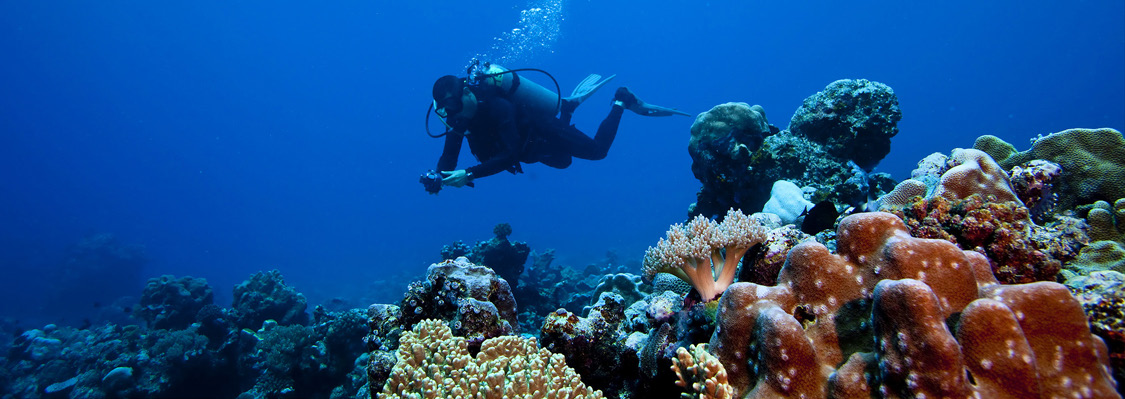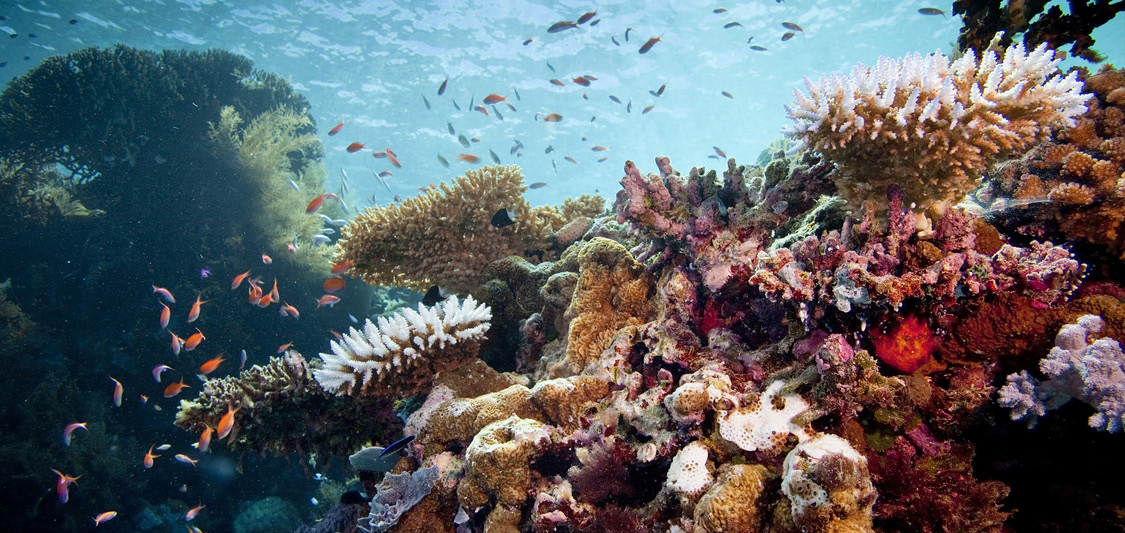Where We Work
Coral reef health and resilience is paramount in Guam, the Commonwealth of the Northern Mariana Islands (CNMI), Palau, the Federated States of Micronesia and the Marshall Islands. These five jurisdictions cover 6.7 million square miles and encompass 2,000 islands inhabited by nearly 500,000 people speaking 12 languages. The area is also home to over 1,300 fish species and more than 480 coral species, with annual benefits valued at $800 million. In response to increasing pressures from climate-related impacts and locally induced human impacts, efforts to blend traditional conservation practices with modern methods are underway to protect these natural resources.
Our Approach
In Micronesia, coral reef conservation is advanced by providing technical and financial assistance to support the management efforts of local government agencies, non-governmental organizations and community partners. To amplify conservation momentum in the region, activities are conducted within the framework of the Micronesia Challenge, a commitment to conserve at least 30 percent of nearshore marine resources and 20 percent of terrestrial resources by 2020. Partnership efforts focus on site-based work in both Guam and CNMI while also fostering shared learning throughout the entire Micronesia region. Through implementation of learning exchanges and trainings, we aim to boost the effectiveness of protected areas, support strategic planning and conduct effectiveness assessments.

Our Accomplishments
Our work has directly benefited approximately 2,000 square miles of coral reef habitat. Partnership efforts have provided technical support to 37 organizations, brought together 29 organizations for learning exchanges and resulted in the training of staff from 25 organizations on reef resilience principles.
- Developed 18 Conservation Action Plans (CAPs) to address threats to coral reefs with climate change impacts integrated into 10 plans.
- Coordinated with governments, partners and working groups across Micronesia to develop and implement the following tools and structures to implement and measure the effectiveness of Micronesia Challenge efforts:
- Developed the Marine Protected Areas Management Effectiveness (MPAME) tool to standardize evaluation of effectiveness of site management and document the accumulated impacts of protected sites. Results are being used to produce a scorecard which tracks the progress of the Micronesia Challenge. Eight sites have completed MPAME evaluations and the Palau Protected Areas Network (PAN) has adopted the tool to evaluate all 13 of its sites.
- Developed the Micronesia Finance and Administration-Operations Network (MFAN) to strengthen conservation organizations in the region by enhancing the management skills of operations staff. Individuals from 16 organizations participated in a workshop to teach financial and administrative skills.
- Coordinated and implemented learning exchanges to share successes and lessons learned between partners, foster better understanding of community-led marine stewardship and catalyze on the ground action.
- Coordinated the participation of over 100 fisherman, scientists, resources managers, NGOs, State agencies and community members in the 1st Pohnpei State Coastal Fisheries Symposium to share the latest information on the state of Pohnpei’s coastal fisheries. The event yielded a commitment from state leaders to better manage Pohnpei’s coastal fisheries and coral reef stewardship efforts.
- Worked with enforcement experts from WildAid to conduct a comprehensive assessment and develop an enforcement plan for Palau’s Northern Reefs.
- Annual ranger training was held with skill-building activities for new surveillance equipment and technologies.
- MOUs were developed with Kayangel and Ngarchelong States to improve coordination and begin establishing joint enforcement and outreach and engagement with fisherman.
- Lessons learned are helping to inform the establishment of a nationwide support network and process for improving enforcement of protected areas and fisheries.
- Provided technical support to the Marshall Islands Conservation Society (MICS) in the creation of a pilot fisheries council in western Majuro (Republic of the Marshall Islands). Activities included:
- Design and collection of a perception survey with a sample of fishers from Majuro Atoll.
- Meetings and workshops with key stakeholders to gather suggestions, feedback, and recommendations.
- Working with the Western Majuro fishers to develop a common vision and mission for their association.
- Establishing direct ties with the Marshall Islands Marine Resources Authority.
